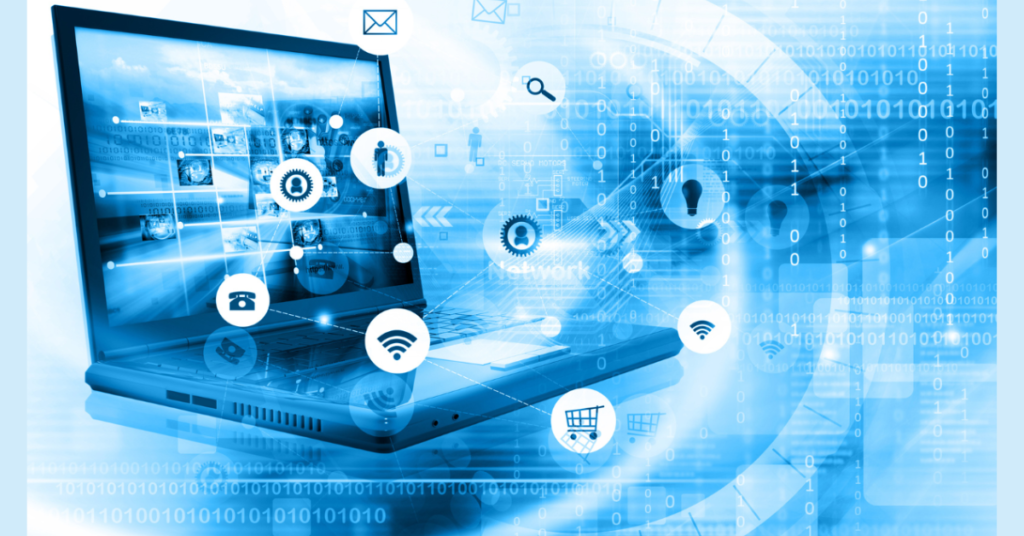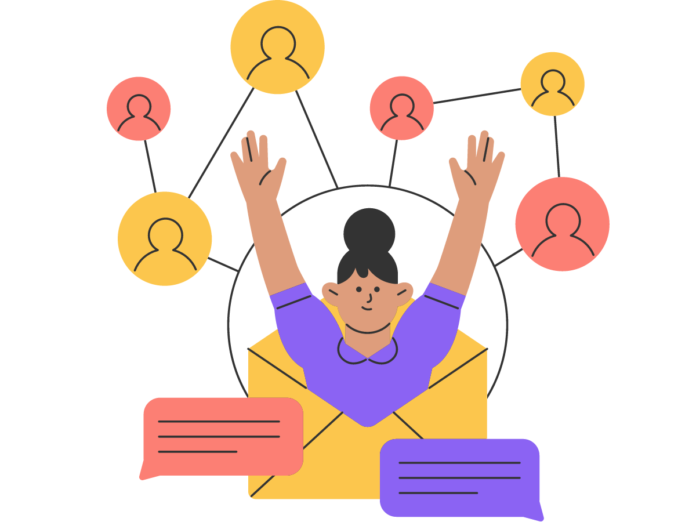Introduction
In modern society, a tech-savvy networker can gain one more important advantage. Efficient networking, be it a climb up the corporate ladder, development of a personal brand, or simply a quest to meet other minds, is the way to get to the undisclosed places that otherwise would be closed. In this manual we will examine the essence of networking, elucidate what a networker actually is, the skills which are prerequisite, and finally how networking can be a game-changer both in your personal and professional life.
What is a Networker?
Basically, a networker is him/her/they who always approaches making and nurturing connections among other people, be it for personal or professional purposes. Networking cannot be merely defined as having business cards or virtual connections on LinkedIn; rather, it is a process of building real and lasting relationships that are beneficial for both parties.
Types of Networkers: Personal vs. Professional
Networkers can broadly be categorized into two types:
- Personal Networkers: One can choose to create Relationships focused on their personal lives that include friendships social circles or community groups.
- Professional Networkers: Toward the end of establishing and developing connections within their industry or profession, one often focuses on career advancement, business development, or knowledge sharing.
The Role of a Networker in Professional Life
Being an effective networker can have a profound impact on your professional trajectory. Here’s how:
Building Connections
Definitely, these networkers can easily point out and establish contacts with the people who would be resourceful for them, guide or even help in finding a job. This is a very important skill for career advancement, as it usually results to job referrals, partnerships, and collaborations that are not possible if otherwise.
Career Advancement Through Networking
The thing that nobody sees is named networking. The cases are solved through personal connections rather than job postings. Having a powerful network of professionals gives you the chance to be chosen for jobs and projects that suit your skills and career aspirations.
Characteristics of an Effective Networker
What makes a great networker? Here are some key traits:
Communication Skills
All good communication is thorough and requires the networking of all the parties involved. This means that you need not only to speak clearly and convincingly but also to be a good listener who is able to understand and react to the needs of others.
Empathy and Active Listening
Successful networkers are empathetic. Their listening skills exceed their talking skills and they actually care about the people they meet. This is what makes the breaking of the ice most comfortable and builds the basis of a long-term relationship.
Relationship Management
Contact management, following up, and relationship nurturing over time are fundamental to any business. Good networkers use tools like CRM systems or even simple notes to remind them about personal details and first conversations.
Common Mistakes Networkers Make
Even seasoned networkers can fall into traps that hinder their efforts. Here are a few to avoid:
Over-Selling Oneself
Your strengths should be highlighted but clarifying the person’s virtues may not be advantageous. The solution is to be genuine in your motives and to clearly communicate your beneficial intentions to others.
Failing to Follow Up
Meeting someone once and then never reaching out again is a common networking blunder. Follow-up is critical to keep the relationship alive.
Tips for Becoming a Better Networker
Improving your networking skills takes time and practice. Here are some actionable tips:
Be Genuine
People are quite able to catch the impostors. When networking, try to build real relationships with people, add them value and you would get more out of the interaction.
Provide Value First
Instead of asking for favors right away, think about how you can assist others. This could be through sharing knowledge, making introductions, or offering a helping hand.
Leverage Social Media
Powerful social platforms such as LinkedIn, Twitter, or even Instagram are great places for networking. Hook yourself up with the material, give your perspective on it, and stay strong about the people who motivate you.
The Importance of Digital Networking

According to the boom in telecommuting and online parties, digital networking has a great deal of importance than ever.
Use of Platforms Like LinkedIn
LinkedIn is not just a program. It is a tool for networking. Use it to connect with your peers, join groups, and be relevant in discussions about your industry.
Virtual Networking Events
Webinars, online conferences, and virtual meetups have made networking more accessible. These platforms permit you to interact with people from the globe without leaving your house.
Networking for Introverts
Networking may be a daunting task for introverts, nevertheless, there are some strategies that can help ease the process:
Strategies Tailored for Introverts
Start small by connecting with individuals one-on-one rather than diving into large groups. Use written communication, like emails or LinkedIn messages, which can be less daunting than face-to-face interactions.
Overcoming Networking Anxiety
Preparation can alleviate a lot of networking anxiety. Have a few conversation starters ready, and set small, achievable goals, like connecting with just one new person at each event.
The Business Perspective: EMC NetWorker
On the business side, the term “Networker” also refers to EMC NetWorker, a popular software solution for data backup and recovery.
Overview of EMC NetWorker Software
EMC NetWorker has been developed to ensure the data safety of businesses with reliable, efficient, and scalable backup and recovery solutions. It can be implemented in various settings and therefore it is appropriate for enterprises of any size.
Key Features and Benefits
- Data Backup and Recovery: EMC NetWorker offers multiple options for data backup, whether on-premises or in the cloud. Thus, it provides the ability to protect the data across different environments.
- Security and Compliance: The tool comes with functionalities like encryption and deduplication which enable businesses to fulfill security and compliance requirements.
How EMC NetWorker Supports Businesses
EMC NetWorker is more than a mere backup solution; it is a complete tool that helps in the data management lifecycle from protection to recovery.
Data Backup and Recovery
EMC NetWorker has made it possible for companies to have their backups automatically done at specific times thus reducing the chances of human errors. This software’s fast data recovery can make the downtime as low as possible and that is very important for the business to be able to continue.
Security and Compliance
Complying with the existing regulations is a must and there is no discussion on it. Backups are not enough, so EMC NetWorker’s security features are designed to protect data from malicious actors.
Networker in Different Industries
Networking isn’t confined to a single field; its principles are applicable across various sectors.
Networking in IT vs. Other Sectors
In IT, networking might involve attending tech conferences or joining online coding communities. In other fields, like marketing or finance, the approach might be more focused on industry-specific events or professional associations.
Industry-Specific Networking Tips
- IT Professionals: Engage in online forums like GitHub or Stack Overflow.
- Marketers: Attend webinars hosted by industry leaders and engage on platforms like Twitter.
Networking Tools and Resources
To excel at networking, having the right tools is essential.
Networking Apps and Platforms
Apps like Shapr, Meetup, and LinkedIn can help you find networking opportunities tailored to your interests and location.
Professional Associations and Groups
Joining professional groups can provide access to exclusive events, resources, and connections within your field.
The Future of Networking
The networking landscape is changing permanently, new trends are coming out of time to time.
Trends in Digital and In-Person Networking
Hybrid networking events that are both physical and virtual are gaining popularity. This format enables the participants to be more versatile and provides the chance for more people to take part in the networking.
The Impact of AI and Automation
AI tools provide the opportunity for people in the networking profession to discover connections and even come up with suitable actions for follow-up, which makes the process of networking more efficient and targeted.
Conclusion
The power of the network is the tool that when used correctly can be the greatest source of joy and progress in your life. No matter if you are a socialite or an introvert, there are methods and instruments that can make you successful. Be the digital age; be your real self, and always add value to the communication you have.
FAQs
What is the best way to start networking?
The very first action you can take to network with others is to tap into your current connections and ask them to introduce you to their other acquaintances. You can also gain contacts at industry events, make relevant comments in online groups, and use social media platforms like LinkedIn.
How can I network if I’m shy?
Start with small steps, such as engaging in online discussions or sending connection requests with personalized messages. Prioritize individual interactions over engaging with large groups.
How do I maintain my network over time?
Make it a habit to regularly interact with your contacts, send them relevant materials, and try to find ways to make their life easier, be it by providing them with your expertise or introducing them to others.
What are the key benefits of using EMC NetWorker?
EMC NetWorker is a great option for companies that want to protect their sensitive data because of its strong functional features, easy to use interface and scalability.
How do I measure the success of my networking efforts?
Track metrics such as the number of new connections made, opportunities generated, or referrals received. Set clear goals for your networking activities and regularly assess your progress.


